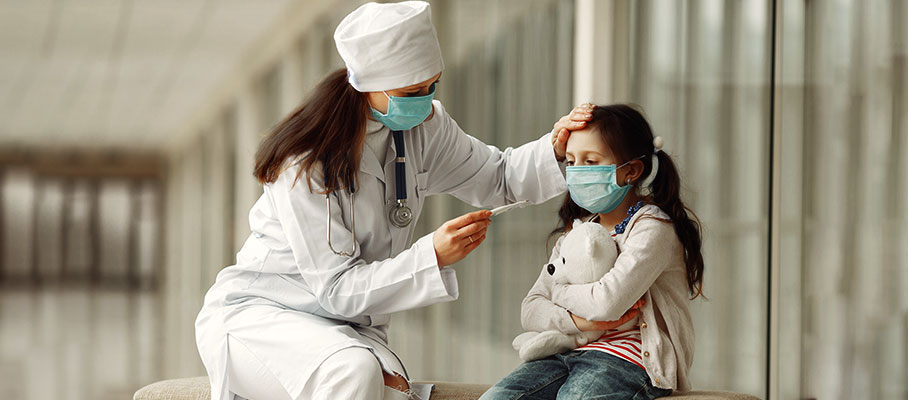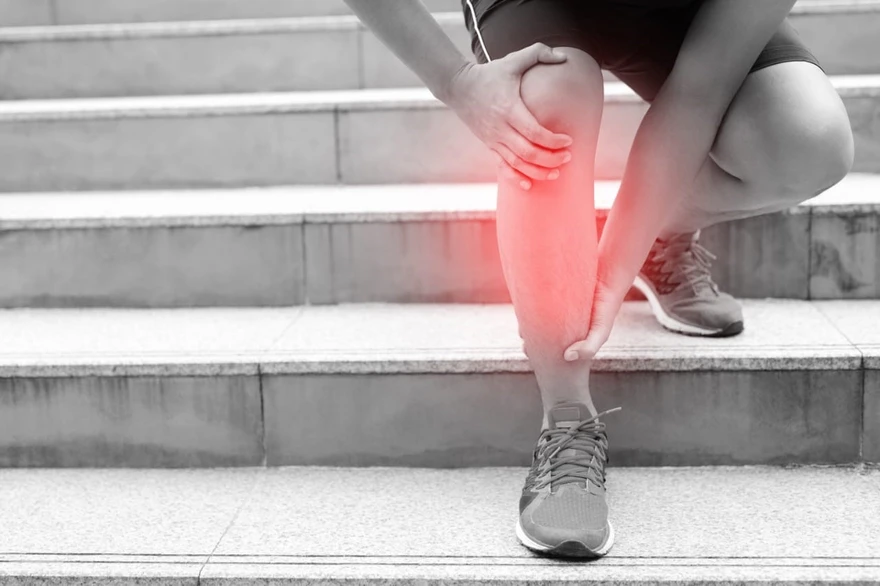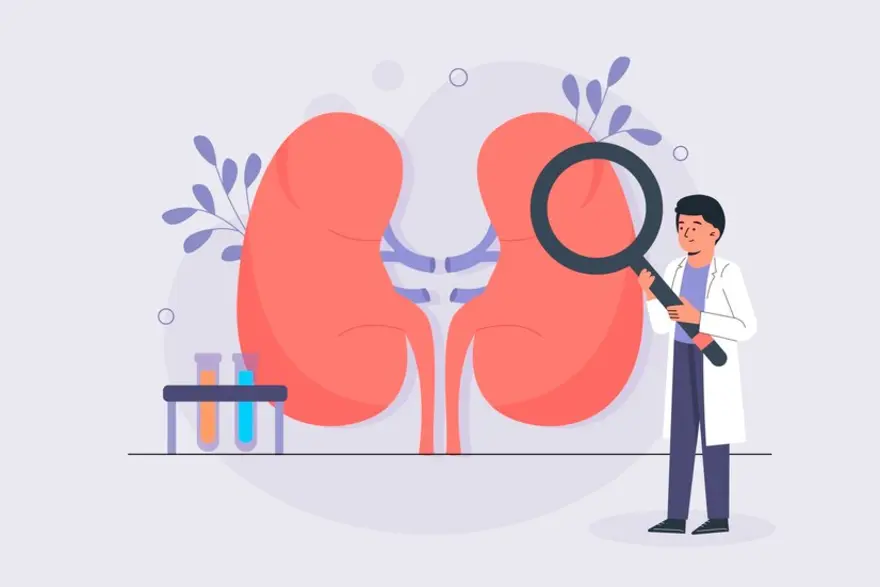Health Wellness
Will COVID third wave affect children more than adults? Your questions on third wave answered
5062 Views
0

As India braces for the third wave of COVID-19 in October 2021, experts have raised concerns over its impact on children. Owing to the fact that vaccines for children are still unavailable in the country and a higher number of children got affected in the second wave, parents are stressed about their kid’s safety. They are looking for information on how to protect their children and the measures they can take if their child, or a family member, has symptoms of COVID-19, or tests positive.
Is the third wave going to infect more children?
In view of rising panic, an ongoing AIIMS-WHO study disapproved the above findings and suggested that it is unlikely that the third wave will hit more children in comparison to adults. Additionally, more than half of children have already been infected in the second wave, so there is a lesser chance for the SARS-CoV-2 virus to spread among this population, in a way different than the other population groups.
Is there a need to worry?
The National Institute of Disaster Management has also issued a warning that there is still "cause for worry, if not panic", as children are unvaccinated and existing medical facilities are scarce. The Indian Academy of Pediatrics (IAP) has revealed that the likelihood of children infected with COVID-19 is similar to adults and older individuals; however, there are no reports of higher severity of this disease in children.
Keep an eye: Common symptoms of COVID-19 in children
The second wave has shown that majority of children infected with COVID-19 were asymptomatic to mildly symptomatic. Very few cases required hospitalizations. Various studies also showed that the proportion of children who were admitted to intensive care unit were lesser than the adults requiring intensive care.
The most common symptoms of infection in children are:
- Cold
- Mild cough
- Fever
- Body pain
Besides these, the majority of children infected with COVID-19 also reported pain in the abdomen, loose motions, and vomiting in the second wave.
What precautions can I take to protect my child from getting a COVID-19 infection?
Currently, no medicines have been recommended for the prevention of coronavirus infection in children.
Moreover, vaccines are only approved for use in adults and only those above the age of 18 are eligible to receive a shot. This criteria for vaccine holds the reason, that why more children may get infected in the third wave as the immunized adults who are safe from infection may transmit the virus to the children who are unprotected/unvaccinated.
Therefore, the best way to prevent COVID-19 infection in children is by following COVID-19 appropriate behavior and keeping yourself infection-free.
Masks are not recommended for children aged 5 years and under, as per the Guidelines issued by the MoHFW. For smaller children, adult supervision is necessary. Always instruct children, not to wear a mask while playing sports or doing physical activities, like running, jumping, etc, so that they do not have trouble breathing.
Other precautions you must take are as follows:
- Disinfect all the commonly touched surfaces in the house.
- Follow social distancing and stay home as much as possible. Avoid taking your child to crowded places or social gatherings.
- Practice frequent hand washing with soap, or use a 70 percent sanitizer.
- Adults should get vaccinated in order to reduce the risk of transmitting it to children.
- Ensure that your child should be kept away from sick people. Always teach your child to cover his mouth while coughing or sneezing.
- Try to minimize spicy, oily, and junk food for your children.
- Encourage your child to eat a well-balanced diet including fruits, vegetables, legumes, pulses, and wholegrain, which will help him/her boost immunity.
How can I protect my child, if a family member has COVID-19 infection ?
- Do not panic and isolate your family member with COVID-19 immediately, and seek a doctor’s advice.
- Do not let the child get in contact with the COVID-positive family member. If in case, the mother is infected and the baby needs to be with her, consult your doctor.
- Follow precautions, interact with them from a distance, and always wear a mask
What are the measures needed to manage different COVID-19 situations in the family at home?
If a mother is COVID-19 positive, but her children are negative
- In absence of other childcare options, mother can take care of her children, unless she is very sick or needs hospitalization.
- However, mother should strictly follow the best possible sanitization measures including a double mask and physical distancing.
If a mother along with her children are COVID-19 positive
- Keep the children with their mother, unless the mother is very sick and need hospitalization.
- In infants, breastfeeding should be continued as much as possible.
If a child is positive for COVID-19 whereas his parents are tested negative
- Parents should continue taking care of their children.
- However, they should adhere to COVID-19 protocols such as wearing proper masks, gloves, etc.
- COVID-19 positive children should be kept away from older individuals like grandparents.
Is there a category of children who are at risk of getting a severe illness from COVID-19 ?
Children with a pre-existing disease such as a heart, kidney or liver disease, or malignancies can be at a greater risk of getting a severe illness from COVID-19.
Parents need to be more vigilant if the child has obesity, diabetes, asthma or chronic lung disease, sickle cell disease, or immunosuppression.
If my child has a fever, is there a method to know whether it is COVID-19 or flu ?
It is difficult to know whether your child is infected with COVID-19 or having a common cold/fever. You need a laboratory test to confirm the diagnosis.
When should I get my child to undertake a test for COVID-19 ?
Get your child tested for COVID-19, if:
- If your child has been in close contact with a COVID-19 positive person.
- If your child was in contact with a positive person, however, does not show any symptom. Watch for symptoms until 14 days after the initial contact, if your child develops symptoms within this duration, get him tested for COVID-19.
- Get your child tested if he is showing any of the COVID-19 symptoms, but you are unsure about the contact history.
Book an RT-PCR test from home.
Always seek your doctor’s advice for children who show any of the COVID-19 symptoms.
What are the measures needed to be taken, if my child tests positive for COVID-19 ?
- Isolate your child at home.
- Record temperature and oxygen saturation with a pulse oximeter at home, every six hours.
- If the temperature is more than 1000 F, you can do tepid sponging with tap water. Administer syrup or tablet paracetamol, as advised by your doctor.
- Follow good hand hygiene practices like regular handwashing with soap.
- Strictly adhere to personal protective measures for yourself and your child. You and your child should wear a surgical mask and change it after eight hours of continuous wear.
- Give your child a light home-cooked diet and keep them well hydrated.
- You may give vitamin C, vitamin D, zinc to boost overall health and immunity. However, always take medical advice before giving any medicine.
- Always check for danger signs, if present, seek urgent medical advice.
What are the danger signs and symptoms to watch in children with COVID-19 at home?
Be watchful for the following five symptoms:
1. High fever that lasts more than three days
2. Reduced oral intake by the child
3. Child becoming lethargic
4. Increasing respiratory rate
5. Drop of oxygen saturation below 93 percent at home. Consult your doctor immediately or take him to the emergency department, if your child is showing any of the above symptoms.
Do not panic and take the best care of your kids.













1701259759.webp)









 WhatsApp
WhatsApp